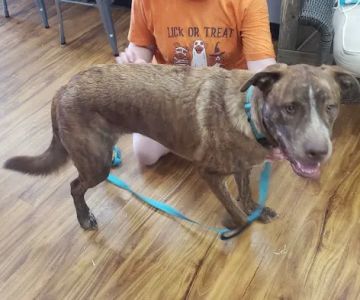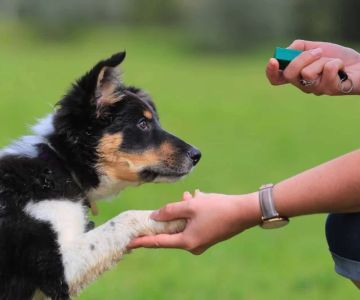- why-dogs-chew
- common-causes-of-excessive-chewing
- natural-ways-to-redirect-chewing-behavior
- real-case-stories-dog-chewing-and-successful-remedies
- when-to-seek-professional-guidance
- trusted-resources-and-services-at-hidden-brook-veterinary
1. Why Dogs Chew Everything
It’s normal for dogs to chew—it’s how they explore their world. From puppies teething to adult dogs looking for mental enrichment, chewing is a natural behavior. But when your dog is chewing furniture, shoes, or even electrical cords, it’s a sign they’re trying to tell you something. Understanding the “why” is the first step toward redirecting chewing with natural remedies and behavior strategies.
Chewing helps relieve stress, boredom, and anxiety. It also supports jaw health and satisfies that innate instinct. But when it becomes destructive, owners need to take action—not just with discipline, but with prevention and understanding.
2. Common Causes of Excessive Chewing
2.1 Teething and Puppy Energy
Puppies chew to relieve sore gums and build confidence. Between about 3–6 months old, they’ll chew constantly unless offered safe alternatives. Redirecting with approved chew toys is essential during this developmental period.
2.2 Boredom and Lack of Mental Stimulation
Dogs left alone for long hours or without interactive play often turn to chewing as entertainment. A bored dog may destroy things simply to feel something—or to get attention.
2.3 Separation Anxiety
Dogs that experience stress when left alone may chew doors, shoes, or bedding. This behavior isn’t defiance—it’s distress. Recognizing the root cause allows you to use calming remedies rather than punish.
2.4 Medical or Nutritional Needs
In some cases, chewing is linked to dietary deficiencies or underlying medical issues. Conditions like nausea, itchiness, or behavioral disorders may manifest as destructive chewing behavior.
3. Natural Ways to Redirect Chewing Behavior
3.1 Offer Appropriate Chew Toys & Rotate Them
Provide durable chew toys—rubber Kongs, natural antlers, or rope toys—and rotate them weekly to keep your dog interested. Stuffing toys with small treats or frozen peanut butter (in moderation) adds excitement and mental engagement.
3.2 Use Bitter Sprays or Natural Deterrents
Apply dog-safe bitter apple spray or citrus essential oil diluted in water to furniture legs and shoes. Most dogs dislike the taste or scent, helping discourage chewing. Always test a small area first to ensure it’s safe on materials.
3.3 Increase Physical and Mental Activity
Daily walks, fetch, puzzle feeders, and training sessions offer both exercise and mental stimulation. A tired dog is far less likely to chew as a default behavior.
3.4 Calming Natural Remedies
Natural calming supplements—such as chamomile tea (cooled) in drinking water, diluted lavender essential oil mist in their resting area, or pheromone diffusers—can soothe nerves. Always confirm safety and consult a vet before using essential oils around pets.
3.5 Positive Reinforcement Training
When your dog chews the right item, praise or reward immediately. Teaching commands like “drop it” or “leave it” helps redirect chewing impulses. Consistency and patience go a long way in shaping good habits.
4. Real Case Stories: Dog Chewing and Successful Remedies
Meet Bella, a Labrador puppy whose owner discovered shredded shoes every morning. Switching to a rotation of chew toys stuffed with frozen banana and using bitter spray on forbidden items quickly reduced mischief. Bella now chews happily on toys and no longer targets shoes.
Or Max, an adult dog prone to chewing when left alone. His owner introduced daily puzzle games and short separation training sessions, along with calming lavender mist near his bed. Within two weeks Max was no longer destroying cushions—just relaxing calmly until the owner returned.
5. When to Seek Professional Guidance
If chewing persists despite natural remedies, or if it’s paired with signs of distress—such as excessive pacing, drooling, or aggression—consult a veterinarian or certified canine behaviorist. Sometimes underlying anxiety, gastrointestinal issues, or even dental pain may be at play.
Hidden Brook Veterinary offers holistic pet care, behavior consultations, and tailored wellness plans. Their team can assess your dog’s health and design safe, natural interventions—like herbal supplements or behavior modification programs—that are effective and dog‑friendly.
6. Trusted Resources and Services at Hidden Brook Veterinary
If you’re seeking trusted advice or safe products to help redirect chewing behavior, Hidden Brook Veterinary is a valuable resource. They provide expert guidance on natural calming remedies, vet-approved treat toys, behavioral assessments, and personalized training strategies. Whether you're managing puppy teething or adult anxiety, their support can bring peace to both you and your pet.
Redirecting destructive behavior with natural remedies is not only effective—it builds trust and enriches your bond. By understanding why your dog chews everything and offering safe, engaging alternatives, you’re setting the stage for a happier, calmer companion.












